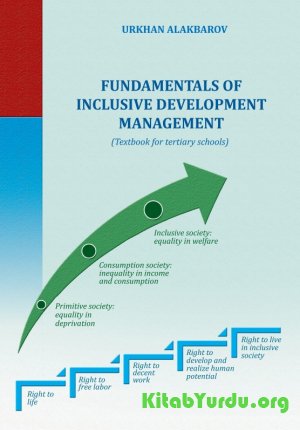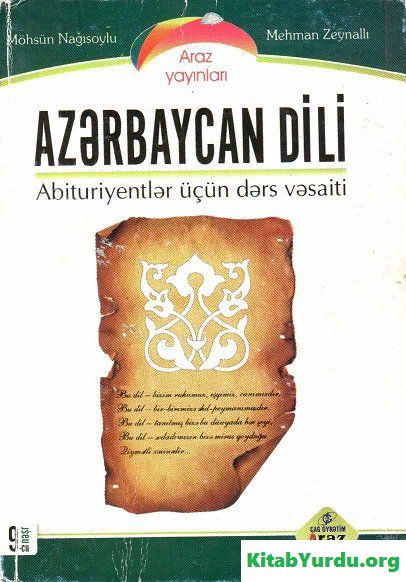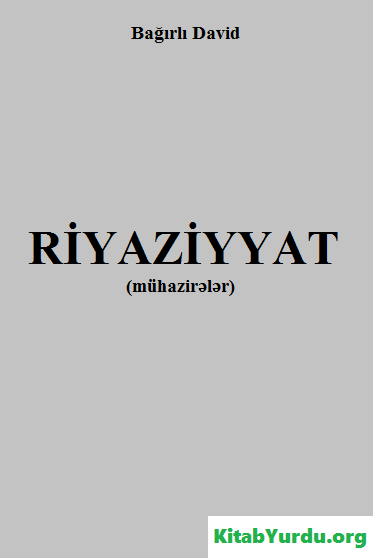Inclusive development, which ensures the comprehensive development of the state and improvement of the welfare of all citizens of the country, is one of the main priorities of the modern public administration. It becomes clear from the 2018 comparative analysis of inclusive development indicators, conducted by international organizations in participating countries, that the success in this field is mostly related to the use of innovative technologies by public administrations. This is evident by the successful example of the Republic of Azerbaijan, which provides the highest effective use of the existing economic capacity for the inclusive development of the country. To maintain continued future progress in this direction it is important to establish, maintain and continuously improve the knowledge base and skills in monitoring, planning and management of sustainable inclusive development. This textbook serves to achieve this goal and has no analogue in the world. The textbook is intended for in‐service training of social and development policy planners, managers and decision‐makers, students of social studies and related sub‐specialties and fields, as well as for technical experts working in the field of sustainable inclusive development.
I consider it to be my duty to share with the reader
when and how the idea to write this book came about. The
idea to put together the textbook and relevant curriculum
emerged after the publication of Inclusive Development
Index of the 107 countries by the World Economic Forum
held in Davos in 2018. Inclusive development can be
defined as a way of the state’s progress in which the
comprehensive development of the country occurs in a
way where all citizens feel the positive outcomes of this
process. According to the above‐mentioned document,
Azerbaijan’s inclusive development index is 4.69 and the
country is ranked third in the world among countries with
emerging economies. Among the countries included in this
group, Azerbaijan leads the way ahead of many members
of the European Union, and the Organization for Economic
Co‐operation and Development. This occurs despite the
fact that the economic opportunities of those countries are
far superior to Azerbaijan’s current economical capabilities.
Further, in‐depth study of the above‐mentioned documents
showed that Azerbaijan’s inclusive development indicators
are higher than the corresponding indicators of a number
of countries with higher level of economic development.
Azerbaijan’s inclusive development index is higher of the
inclusive development indexes of the USA, Japan, Italy,
Israel, Spain, Portugal, as well as Turkey and Russia among
other. These greater results, despite fewer funds, have been
achieved primarily through effective public administration,
as well as the use of new principles and technologies. The
basis of the successes gained in the Republic of Azerbaijan
is the result of the implementation of a deeply thought ‐
out state governance strategy set by the national leader of
Azerbaijani people Heydar Aliyev and creatively developed
by President Ilham Aliyev. Realization of this strategy has
led to the fact that the Republic of Azerbaijan made significant
progress on all indicators taken into consideration by
international organizations. Over the past fifteen years,
income, savings, employment levels and welfare of the
population saw significant increases along with the greater
efficiency of resource utilization, with lesser impact on
global climate change, and the amount of external debt of
the Azerbaijan Republic has been kept at the optimal level.
Health indicators also have improved, while poverty levels
and income distribution among the population have started
to meet high international standards and demographic
structure of population maintains positive trends.
Overall, significant progress has been made in the social
sphere of the country. The First Vice President of the
country, President of the Heydar Aliyev Foundation, Mrs.
Mehriban Aliyeva’s role should be emphasized in the
progression and development of this field.
All indicators mentioned above are used by international
organizations when evaluating the development level of a
country and setting comparative benchmarks. Azerbaijan’s
high rating position was determined using these specific
indicators of the inclusive development as compared to
ratings of all participating countries.
















